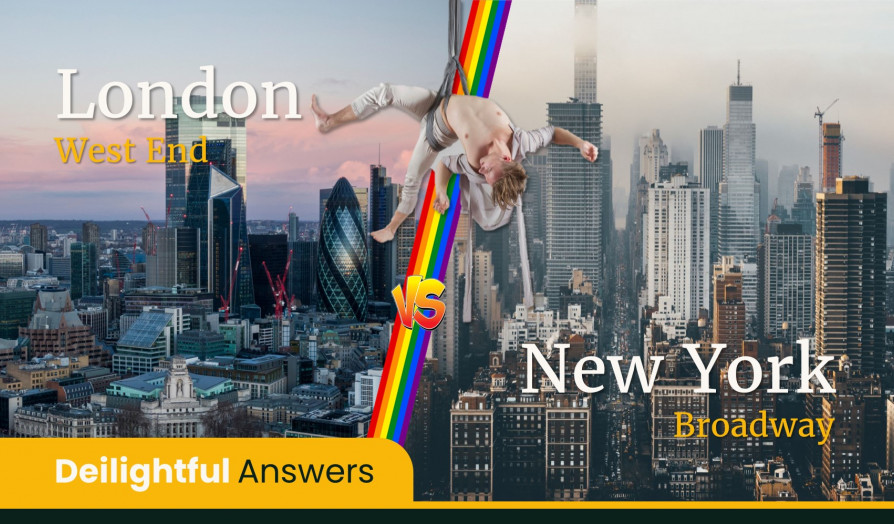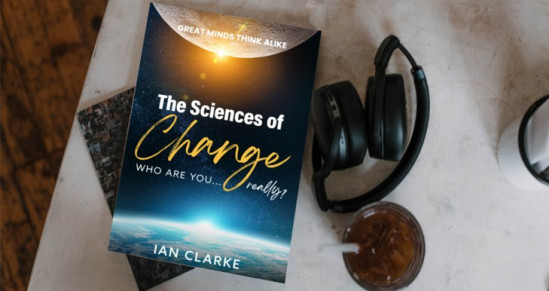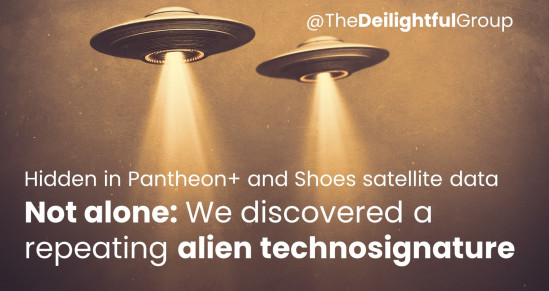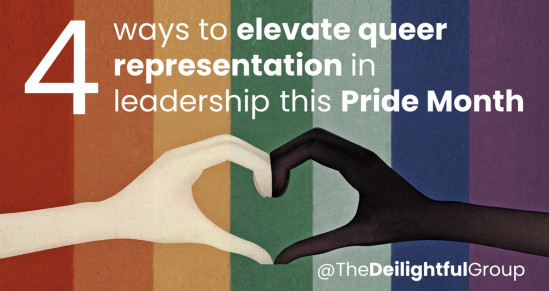Forget bend it like Beckham. Aerialist for The Box NYC, instructor at Brooklyn's Body and Pole and Underground Cabaret heartthrob Jacob McKee (pictured here), like so many outstanding queer talents, has made his decision. In the lip-sync battle between boardroom and stage, she done already done had herses. But who misses out more from the absence of LGBTQ+ talent in the city, and which city has LGBTQ+ talent made the biggest impact?
Why meaningful corporate allyship matters
My final ExCO contribution to our LGBTQ+ Staff Network before resigning my investment banking career last year was to reopen the first theatre on New York City's Broadway post-COVID. With my face all over the press and resignation letter filed, awkwardly I appeared alongside the Chairman, to coordinate our most ambitious LGBTQ+ event ever.
My own initiative, 'Broadway is Back!' was a multi-venue live showcase of the many alternative talents within the LGBTQ+ community, featuring multi-award winning vocalists, musicians, aerialists and dancers - many of which had lost all their income since the pandemic began. So this banker was happy to swap his pricing models and product guides for venue inspections, casting calls, hard hats and technical tests to ensure we gave Broadway an A-list reopening.
Itself heavily impacted by lockdowns, my venue of choice was Broadway's award-winning, not-for-profit Tada! Youth Theater, providing young people from different social, racial, economic and cultural backgrounds with inspirational theatre programs to help them embrace their creativity and think differently since 1984.
This wasn't performative rainbowashing by big business. We thought long and hard about not just the event space or participants, but the broader socioeconomic impact it could deliver for our marginalised colleagues and the communities in which the bank operated. The Chairman most certainly wasn't there for me, he was their for all LGBTQ+ people.
This was a real and meaningful moment - a sea-change in views towards and support for a community that throughout our history as an organisation had carried little consequence to group strategy. We had finally begun to realise that the only waste here was that of our organisations potential and that of humanity.
Who's better, New York City's Broadway or London's West End?
Recognisable the world over and one of the first American streets to be illuminated by light, New York City's iconic and dynamic Broadway Theatre District today attracts 14.8 million annual spectators - 66% of which are female - spending £1.5bn across its 41 theatres dating back as far as 1903. It's longest running show Phantom of the Oprah has seen 12,500 performances by just 15 Phantom's - played by both black and white actors - over 30 years. Meanwhile biggest seller Lion King's intersectional cast has grossed it a record $2m a week across its 20 year run, while Lin-Manuel Miranda's masterpiece Hamilton, retelling forgotten stories of the black contributions that helped found the United States, has been nominated for 16 of the available 26 categories in the US Tony Awards. Sadly I never got to see it as stalls tickets for Hamilton often sell in excess of $1,000, although it is possible to pay as little as $10 per ticket through ticket lotteries.
With its 15.3 million annual spectators spending £800m across its 240 theatres, London's glitzy, historic West End isn't constrained to a single street (albeit a 15 mile street), though only 46 meet UK Olivier Awards criteria. Today's oldest Adelphi dates back to 1806, though theatres have continuously occupied the site of the current Theatre Royal Drury Lane since 1663. Now approaching its 28,000th performance, Agatha Christie's 1952 murder mystery Mousetrap is the longest running show in history, whilst one of the newest Hamilton tops the Olivier's amongst musicals with 7-awards over its 3 year run matched only by Matilda, now in its 8th year. Appearing in London's Phantom of the Oprah for 26 years and counting, Philip Griffiths holds the world record for single production consecutive appearances. Here tickets sell for a more modest £30 (stalls) to £200 (premium), or a little more pricey £10 in the Hamilton lottery.
Why the LGBTQ+ community has the potential to transform our businesses
Whichever criteria you judge 'better' by, it's undeniable that through its charisma, uniqueness, nerve and talent, the LGBTQ+ community has entertained, enamored and enthralled audiences gay or straight, male or female, black or white, for generations, whilst its over-representation in theatreland has helped create two of the world's most successful, profitable and long-standing entertainment business districts in history.
Today, the £3tr value of the pink pound grows ever larger thanks to the growing influence and spending power of GenZ - a generation where 21% of people admit to some form of same-sex attraction. And yet sadly there isn't a single 'out' C-Suite Executive across the FTSE-100 to represent their interests and champion the potential of their much-needed talents in our ubiquitous boardrooms that are today devoid of #loveislove.
That's why all too often, LGBTQ+ people continue to peak below their potential in big business, fueling a lack of representation, sponsorship and mentorship opportunities to lift up others within a community still blighted by poverty, drug addiction, poor mental health, high unemployment, intersectional hate crime and safeguarding issues.
Fancy coming out as Human yet?
When you're ready to allow LGBTQ+ people into your board room, let us know and we'll help you finally inject some Charisma, Uniqueness, Nerve and Talent into your firm future.
.png)



